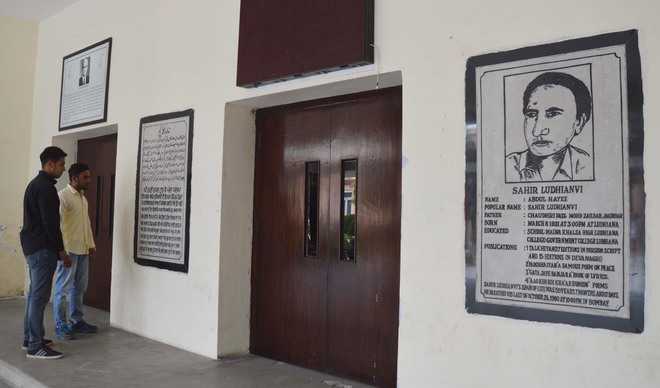Manav Mander
Tribune News Service
People’s poet Sahir Ludhianvi needs no introduction and when it comes to praising women and her dignity, the writer is par excellence.
“Aurat ne janam diya mardon ko; Mardon ne use bazaar diya. Jab dil chaaha masla-kuchla; Jab ji chaaha dutkaar diya…” Sahir was at his best when he penned this soul-stirring song for BR Chopra’s “Sadhna”. This song is a direct attack on mankind and how he ill-treats women despite the fact that she is a mother, who gives birth to a man and brings him into this world.
March 8, which is celebrated as International Women’s Day is Sahir Ludhianvi’s birth anniversary as well.
Dr Kewal Dheer, Chairman, Adeeb International (Sahir’s cultural academy), said Sahir has brilliantly written about women and her dignity.
Meanwhile, Sahir’s poem on war: “Ae Sharif Insano” written after the 1965 Indo-Pak war reads: “Khoon apna ho ja praya ho, nasle aadam ka khoon hai aakhir. Jang mashrik mein ho ja magrib mein, apne aalam ka khoon hai aakhir. (Shedding blood — be it on this side or that, is that of a human being. War’s outcome — be it in west or east, is bloodshed only).
Delhi University student Gurmehar, who lost her father when she was barely of 2-year-old, decried war hysteria justifiably when she said: “It is war that killed her father not Pakistan”.
“Certain politicians’ disparaging and discouraging remarks were equally cowardly and quite unfortunate and insensitive. Perhaps, they have not read Sahir Ludhianvi, who has written about war in his poem,” said Brij Bhushan Goel, alumni of SCD Government College for Boys. Sahir was also a student of this college.
He further writes: “Fateh ka jashan ho ki haar ka sog, zindagi mayyeton par roti hai. (War victory celebrations or defeat’s gloom, families of both sides weep for their kin). Sahir further says: “Jung to khud hi ek masla hai, jung kya maslon ka hal degi?” (War brings disaster, why find solutions through it?) Sahir concludes this poem with strong advice: “Jung talti rahe to behtar hai, aap aur hum sabhi ke aangan mein shamma jalti rahe to behtar hai” (Better to avoid war at all costs so that the light (of life) keeps burning in every home.”
Sahir reprimanded whole-heartedly all those, who sowed seeds of hatred to divide society on the basis of religion and cast plank, when he penned a beautiful song for Bollywood movie ‘Dhool Ka Phool’ which starts as: “Tu na Hindu banega na Musalman banga, insaan ki aulad hai insaan banega” (Oh the newly-born child, you will neither be a Hindu or Muslim, only of a good human devoid of such labels as you are the progeny of human kind only.”
“We are proud to have studied in Golden Jubilee days of SCD Government College Ludhiana, where Sahir studied, but was expelled as he fell in love with the daughter of then Principal of the college. Sahir never married in his life. Sahir’s father married 12 women, but Sahir didn’t marry even once. He was close to his mother and took her to Bombay. Sahir remained sad after the demise of his mother,” said Goyal.
Unlock Exclusive Insights with The Tribune Premium
Take your experience further with Premium access.
Thought-provoking Opinions, Expert Analysis, In-depth Insights and other Member Only Benefits
Already a Member? Sign In Now










